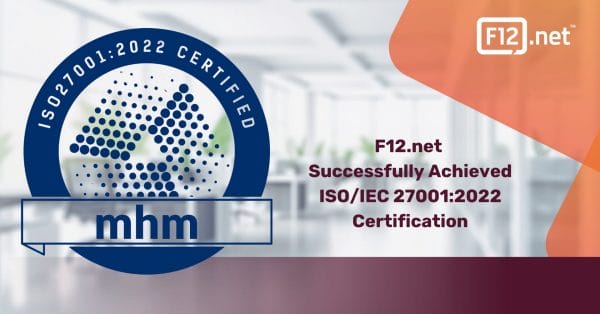Executive Brief: In the following blog, we break down specific lessons our manufacturing customers have learned by partnering with us. We’ve masked their identities, but the lessons are very real. We’ll look at common challenges your manufacturing company is probably facing, as well as clear lessons learned (and a few practical best practices and tips), to help you leverage your IT and protect your business.
A Hypothetical Manufacturing Company with Very Real IT Problems
In the heart of Canada’s bustling manufacturing sector, a story unfolds at Acme Manufacturing (a completely fictional business, based on our experiences working with many manufacturing companies over the years), a company known for its innovation and market presence.
Despite its growth, Acme has been facing unexpected challenges that have been impacting its bottom line. Senior leadership is perplexed, unable to pinpoint the root cause of these operational hiccups.
Seemingly unrelated, Acme leadership has also become concerned that they could become the target of a cyber attack. Due to legacy systems and lack of robust protections, the occurrence of attacks on manufacturers has increased to account for 24.8% of all attacks worldwide.
The situation at Acme mirrors a common yet often overlooked issue in the manufacturing industry: underlying IT problems that stealthily erode business efficiency and security.
The Unseen Culprit Behind Manufacturing Operational Struggles
Imagine a scenario where Acme’s production line experiences frequent, unexplained downtimes. Machines suddenly go offline, halting production and delaying orders.
Initially, these incidents seem like mechanical failures, but further investigation reveals that outdated IT systems and software incompatibilities are the real culprits.
This revelation comes as a surprise to Acme’s senior leadership, who had not considered IT infrastructure as a potential source of their operational woes.
Unfortunately this is something that our team at F12 sees every day and there are very real impacts on your business.
The Effect on Your Daily Operations
If you head up a manufacturing company like fictional Acme, these IT challenges translate into tangible operational issues for you, your team, and your customers:
- Production Delays: Each minute of downtime means delayed orders and a direct impact on revenue.
- Increased Operational Costs: Inefficient systems require more manual labor and lead to wastage of materials and time.
- Compromised Data Security: Cyber security breaches (like the recent MOAB) not only risk sensitive information but also damage the company’s reputation.
- Inability to Scale: As Acme looks to grow, its outdated IT infrastructure becomes a bottleneck, unable to support new technologies or increased production demands.
These impacts on your business are very real, and you might be experiencing them right now.
But how are they related to your current technology?
Common IT-Related Problems in Manufacturing
Manufacturing companies like this often grapple with a range of IT challenges, but don’t’ realize they’re tied directly to IT, so we’ve mapped them out:
- Downtime is often due to outdated hardware or software failures, directly affecting production capacity.
- Inefficient legacy systems that are not integrated, leading to manual data entry errors and inefficiencies.
- Cyber security threats, where industrial espionage and ransomware attacks threaten to compromise unprotected and old systems, sensitive design data and financial information.
- Lack of specialized IT staff, which means that the existing workforce is stretched thin, trying to manage tasks for which they might not be fully equipped.
The Consequences of Inaction
Failing to address these IT challenges can have severe implications for manufacturing companies:
- Significant Financial Losses: Downtime alone can cost thousands of dollars per minute in lost productivity.
- Reputational Damage: Data breaches including data leaks to the dark web can erode customer trust, a critical asset for any business.
- Lost Opportunities: Technological obsolescence prevents companies from adopting innovative manufacturing processes that could enhance efficiency and competitiveness.
All is not lost, however. In the following article, we’ll explore what you can learn from partnering with IT companies that specialize in the manufacturing space.
A Turning Point for Manufacturing
Below we’ll take a brief look at how typical manufacturers proceed with MSPs, and following that we’ll look at key challenges presented, and what you can learn from them.
Immediate Improvements for Manufacturers
Continuing on with our hypothetical story, Acme Manufacturing recognized these challenges and decides to partner with a Managed Service Provider (MSP) specializing in manufacturing IT solutions and cyber security. This partnership marks the beginning of a transformative journey for Acme.
The MSP begins by conducting a comprehensive IT audit, identifying outdated systems, cyber security vulnerabilities, and inefficiencies. They then implement a phased approach, upgrading Acme’s IT infrastructure, integrating systems for seamless operation, and deploying advanced cyber security measures to protect against threats.
The Outcome
The results are transformative. Acme sees a significant reduction in downtime, with production lines running smoothly and efficiently. Cyber security measures instill confidence among stakeholders, protecting sensitive data from threats.
With the MSP’s expertise, Acme’s IT infrastructure scales to support business growth, enabling the adoption of innovative technologies like IoT for real-time monitoring and analytics.
IT Management Hurdles: The Challenges Facing Canadian Manufacturers Today
In manufacturing, companies across Canada are working to enhance efficiency, protect sensitive information, and adapt to rapidly changing technologies.
Yet, many find themselves grappling with internal IT management challenges that pose significant risks to their operations and growth.
These hurdles might sound familiar, but let’s take a moment to review them, and explore the potential impact on manufacturers while drawing from hypothetical scenarios that reflect common situations in the industry.
Current IT Management Limitations
Imagine a mid-sized manufacturer, “Acme Manufacturing,” operating with minimal IT oversight. With a focus primarily on production and logistics, Acme’s leadership has not prioritized establishing a dedicated IT management team.
This oversight has led to a reliance on outdated systems and ad-hoc IT practices, making it difficult to maintain operational efficiency and security. The absence of specialized IT focus means vulnerabilities go unnoticed, systems are not regularly updated, and there is a lack of strategic IT planning to support business objectives.
Security Vulnerabilities
Perhaps the most alarming concern for Acme Manufacturing is the heightened risk of cyber security threats. The manufacturing sector is a treasure trove of valuable intellectual property and sensitive customer data, making it a prime target for cyberattacks.
Acme’s lack of a comprehensive security strategy, compounded by the reliance on outdated systems and insufficient IT management, leaves the company exposed to data breaches, industrial espionage, and ransomware attacks. Such incidents can have devastating financial and reputational consequences.
The Risks of Relying on a Single IT Person
Acme Manufacturing relies on Jake, a dedicated but overextended IT manager who juggles everything from network management to cyber security. This one-man band approach creates a precarious situation where the entire IT operation hinges on the availability and expertise of a single individual.
Jake’s broad responsibilities limit his ability to specialize in any one area, leading to gaps in the company’s IT capabilities. Furthermore, the risk of burnout is high, and should Jake be unavailable due to illness or leave the company, Acme would be left in a vulnerable position without immediate support for urgent IT issues.
Compounded Operational Risks
The scenario at Acme Manufacturing illustrates how insufficient IT management can lead to severe operational disruptions. Without a team to monitor and maintain IT infrastructure continuously, the company faces an increased risk of prolonged downtime.
This can result in production halts, delayed shipments, and ultimately, dissatisfied customers. The reputational damage from such disruptions can be long-lasting, affecting customer trust and the company’s market position.
Scaling and Innovation Barriers
As Acme looks to grow its business and incorporate more advanced manufacturing technologies, such as automation and IoT for efficiency and analytics, it encounters significant barriers.
The existing IT infrastructure, managed under the limitations described, cannot easily support these innovations. This restricts the company’s ability to scale operations or adopt new technologies that could provide a competitive edge, leaving Acme trailing behind more technologically agile competitors.
Lessons You Can Learn from Manufacturers Who’ve Worked with IT Companies
It’s important to recognize the key function IT plays in your success.
With that in mind, we’ve gathered a few lessons that illustrate how a strategic approach to overcoming common manufacturing IT issues.
Lesson 1: Proactive IT Maintenance Minimizes Downtime
Key Insight: Continuous monitoring and proactive maintenance are crucial in preventing the IT issues that lead to operational downtime. An MSP can implement systems that constantly monitor your IT infrastructure, identifying and resolving potential issues before they escalate into problems that disrupt production. Remember: anticipation over reaction.
Pro Tip: Implement a robust IT asset management (ITAM) system. This system should track the lifecycle of all IT assets, from acquisition through disposal. Regularly review and update your ITAM to ensure that all hardware and software are up-to-date and fully supported. This practice not only aids in minimizing downtime but also helps in budgeting for IT upgrades and replacements before they become critical issues.
Lesson 2: Comprehensive Cyber Security Protects Your Competitive Edge
Key Insight: Cyber security in manufacturing goes beyond protecting data; it safeguards your intellectual property and competitive position in the market. MSPs deploy layered security strategies that include firewalls, intrusion detection and prevention systems, and regular security audits. From this, understand the value of a comprehensive cyber security plan that evolves to meet new threats, ensuring your sensitive information and business operations are secure.
Pro Tip: Adopt a zero-trust security model. Assume that threats can come from anywhere, both outside and inside your network, and verify every access request as if it originates from an untrusted network. This involves implementing strict access controls, using multi-factor authentication, and encrypting data both at rest and in transit. A zero-trust approach ensures that your network is not overly reliant on perimeter defenses, thereby enhancing your cyber security posture.
Lesson 3: Scalable IT Infrastructure Supports Growth
Key Insight: As your manufacturing business grows, so too does the need for scalable IT infrastructure that can adapt to increased demands. MSPs specialize in designing and implementing IT systems that can scale with your business, incorporating cloud solutions for flexibility and efficiency.
Pro Tip: Embrace cloud computing and Infrastructure as a Service (IaaS) for scalable IT resources. Cloud services allow you to quickly adjust your IT capacity based on current needs, without the upfront cost of physical infrastructure. This flexibility is crucial for supporting peak production periods and facilitating business growth. Additionally, consider hybrid cloud environments that offer the best of both private and public clouds, tailored to your specific manufacturing, operational, and security requirements.
Lesson 4: Specialized Expertise Enhances IT Efficiency
Key Insight: The complexity of today’s IT landscape requires specialized expertise that may not be available in-house. MSPs bring a team of experts with a broad and deep understanding of IT solutions, including those specific to the manufacturing industry. This specialization can significantly improve the efficiency of your IT operations, from system integration to data management.
Pro Tip: Foster a culture of continuous learning and professional development within your IT team. Encourage your staff to pursue certifications and training in key areas of IT relevant to the manufacturing industry, such as cyber security, cloud services, and data analytics. This not only enhances your team’s capabilities but also helps in retaining talent by investing in their professional growth. Partnering with an MSP can complement this approach by filling in gaps with their specialized expertise.
Lesson 5: Data-Driven Decision Making Drives Innovation
Key Insight: Leveraging data analytics is key to driving innovation and operational improvement in manufacturing. MSPs can implement and manage data analytics tools that provide actionable insights, helping you make informed decisions about production processes, supply chain management, and customer engagement.
Pro Tip: Implement an integrated data management platform and c-suite dashboards that consolidate data from various sources, including production systems, supply chain management, and customer feedback. Use advanced analytics and machine learning tools to extract actionable insights from this data. Establishing a data-driven culture where decisions are based on real-time data and analytics can significantly improve operational efficiency and drive innovation.
Implementing These Lessons
By understanding and implementing these lessons, your manufacturing company can address and overcome many of the common IT challenges it faces. Partnering with an MSP provides access to specialized knowledge, advanced technologies, and strategic support that can transform your IT operations from a source of frustration into a competitive advantage. This strategic partnership not only solves current IT issues but also positions your company for future success in an increasingly digital manufacturing landscape.
By incorporating our pro tips into your IT strategy, you can enhance your manufacturing company’s resilience, efficiency, and competitiveness. Each tip represents a best practice that addresses specific challenges while positioning your business for long-term success.
Partnering with an MSP that understands the nuances of the manufacturing sector can further amplify these benefits, providing you with the expertise and support needed to navigate the complex IT landscape.
Moving Forward: You Have Options When Considering Manufacturing IT Companies
The challenges faced by Acme Manufacturing underscore the critical importance of robust IT management in the manufacturing sector. Companies must recognize that IT management is not just a support function but a strategic imperative.
Partnering with a specialized Managed Service Provider can help manufacturers overcome these hurdles. This approach ensures continuous monitoring and maintenance of IT infrastructure, enables scalability and innovation, and fortifies cyber security defenses, paving the way for sustainable growth and competitiveness in the global market.
If you’re looking for a Managed Service provider with both Manufacturing and Cyber Security chops, consider scheduling a call with a specialist at F12 today.



